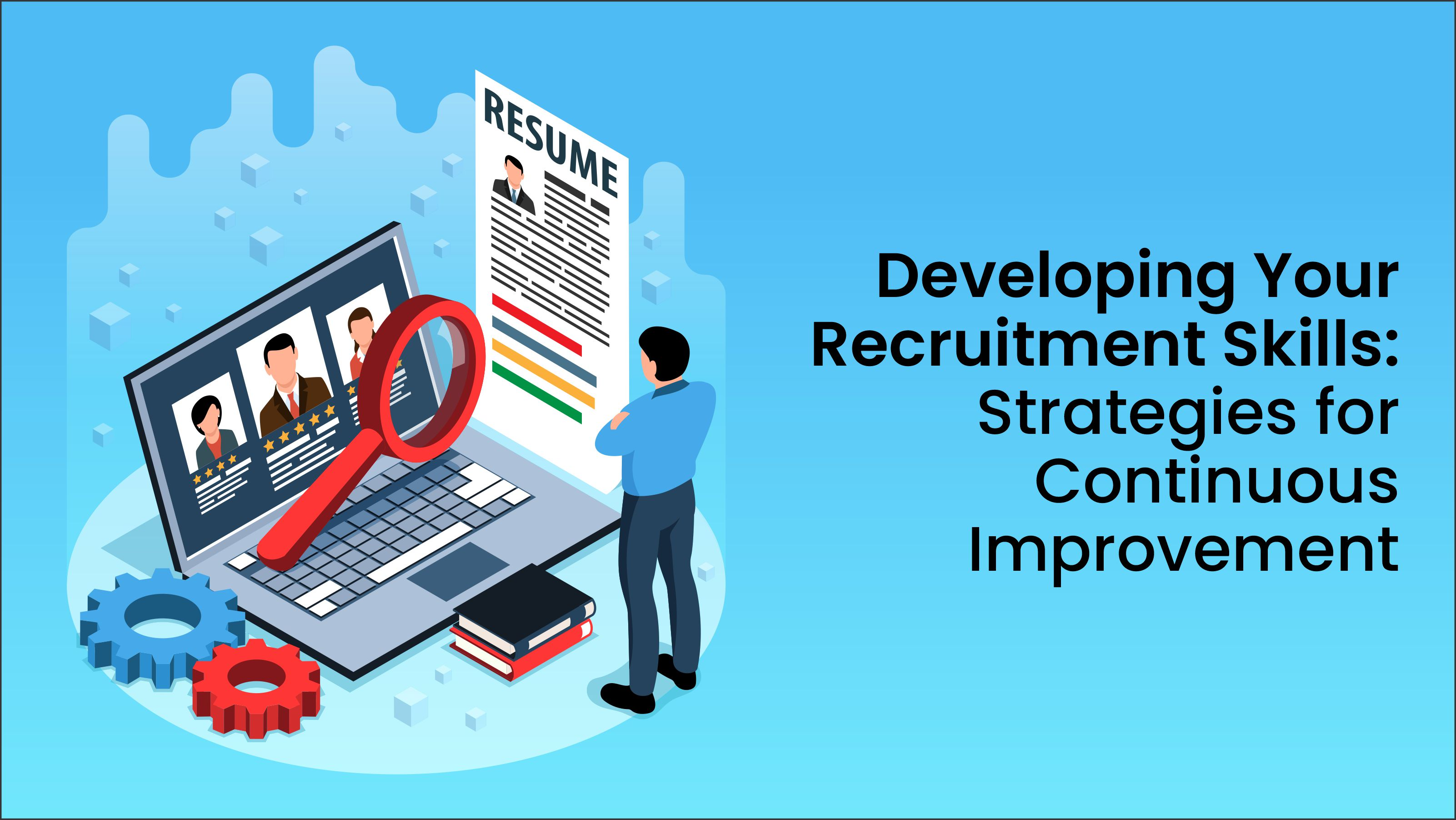Developing Your Recruitment Skills: Strategies for Continuous Improvement

Recruitment is an art and a science, requiring a blend of intuition, skills, and continuous adaptation to new technologies and changing markets. For recruiters, developing effective skills is crucial not only for personal career advancement but also for contributing significantly to the success of their organizations. Here, we explore a comprehensive approach to developing your recruitment skills through continuous improvement strategies.
Understanding Core Recruitment Skills
Before diving into improvement strategies, it’s important to identify the core skills essential for any successful recruiter. These include communication, negotiation, marketing, technical proficiency in recruitment tools, and an understanding of analytics and data-driven recruitment strategies. Mastery of these skills enables recruiters to attract and hire the best candidates efficiently.
- Set Clear Development Goals
Start with setting clear, achievable goals for improving your recruitment skills. Identify areas where you need enhancement—be it candidate interviewing, using recruitment software, or understanding employment law. Setting goals will give you a roadmap for your personal development and help measure your progress.
- Leverage Formal Education and Training
Invest in your professional development by enrolling in recruitment or human resources courses. Many organizations and professional bodies offer certifications like the Certified Personnel Consultant (CPC) or Senior Professional in Human Resources (SPHR) that can deepen your understanding of the recruitment process and legal considerations.
- Participate in Workshops and Seminars
Regular participation in industry workshops and seminars is an excellent way to stay updated with the latest recruitment strategies and trends. These events provide valuable insights into the dynamics of job markets, emerging technologies in recruitment, and networking opportunities with other professionals.
- Embrace Technology and Tools
Technological proficiency is crucial in modern recruitment practices. Make an effort to learn and master new tools that can optimize the recruitment process, such as applicant tracking systems (ATS), recruitment software, and platforms like LinkedIn. Understanding these tools will not only improve efficiency but also enable you to tap into a wider pool of candidates.
- Practice Active Listening and Communication
Enhance your communication skills by practicing active listening. This will improve your interviews and interactions with candidates, allowing you to better understand their needs and expectations. Effective communication also involves clarity in conveying the job role and expectations to potential candidates, which can significantly influence their decision to accept a job offer.
- Develop Marketing Skills
As a recruiter, you need to sell the job and the company to potential candidates. Develop your marketing skills to create compelling job descriptions, understand the employer brand, and effectively communicate the company’s culture and values. This aspect of recruitment is often what distinguishes exceptional recruiters from average ones.
- Expand Your Network
Networking is vital in recruitment. Expanding your professional network will open up more opportunities and provide insights into various industry trends and candidate expectations. Attend industry meetups, join professional associations, and participate in online forums dedicated to recruitment and human resources.
- Learn from Feedback
Feedback is a powerful tool for improvement. Regularly seek feedback from candidates, hiring managers, and your peers about your recruitment process. Use this feedback to make necessary adjustments and improvements. Learning from feedback helps in refining your approach and making your recruitment process more candidate-friendly.
- Adopt a Data-Driven Approach
Understanding and utilizing data can significantly enhance your recruitment efforts. Learn how to analyze performance metrics such as time-to-hire, cost-per-hire, and employee turnover rates. This knowledge will help you make informed decisions that can improve the efficiency and effectiveness of your recruitment strategy.
- Practice Reflective Learning
Reflect on your recruitment experiences regularly. Consider what went well and what didn’t in each case. Reflective learning will help you identify patterns, understand your strengths and weaknesses, and develop better strategies for future recruitment activities.
- Stay Updated with Industry Trends
The recruitment industry is constantly evolving. Stay updated with the latest trends by reading industry publications, following thought leaders on social media, and subscribing to relevant blogs and newsletters. This continuous learning will keep you at the forefront of the recruitment field.
Developing recruitment skills is an ongoing process that requires dedication, curiosity, and a willingness to learn and adapt. By setting clear goals, embracing new technologies, continuously seeking knowledge, and learning from experiences, you can enhance your skills and become a more effective recruiter. Remember, the goal of recruitment is not just to fill vacancies but to build strong teams that contribute to the success of an organization.








